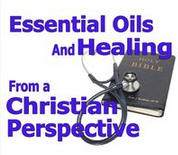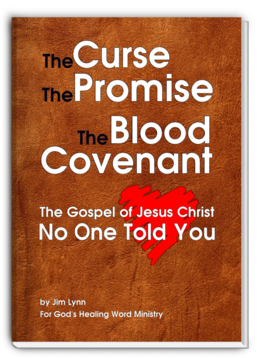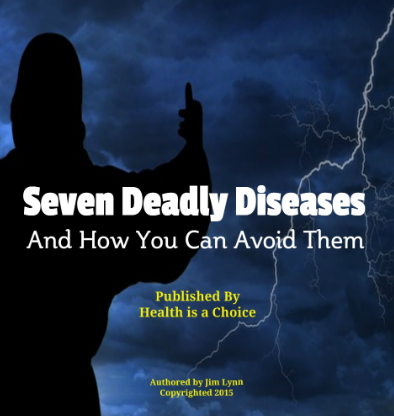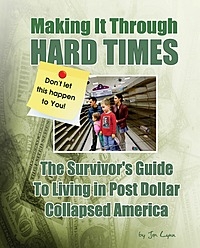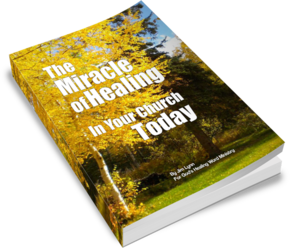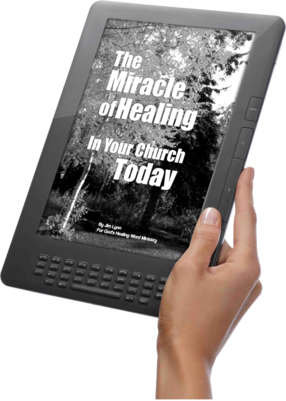
God's perfect will is
not that you be healed, but
rather you never be sick.
America's Great Pharmacy
Seduction:
Consumers are asking their doctors for prescriptions to drugs they have seen advertised on television and in magazines, and more often than not the doctors oblige them. People just can’t seem to get enough of these magic pills.1 What has happened to our culture that turns otherwise sane, drug-free consumers into willing, life-long prescription drug addicts? We are being seduced and here’s how A cute, animated ball is shown in a TV commercial, sadly bouncing around until taking a “feel better” magic pill. Presto chango; in the blink of the eye the once sad ball is now happy and joyful. So goes the storyline used to sell American consumers on a powerful antidepressant drug called Zoloft. The message? Life is better with Zoloft. Another commercial shows an older woman working in her flowerbed. The scene shifts to an elderly man building sand castles with his grandson on the beach, then shifts again to another older man playing soccer with a young boy. As these themes are playing, the words “For Everyday Victories” fades in and out on the screen. Then a voice is heard, “Imagine planning your day around your life instead of your osteoarthritis pain. Vioxx can provide 24-hour relief of osteoarthritis pain to help you enjoy everyday things again.” The ad leaves viewers with a sense of relief. Welcome to the fallacious prescription drug addiction game of the pharmacy world. The pharmaceutical cartel wants life-long customers, and this is how they get them. Television and magazine ads are used to seduce consumers by creating the illusion that drugs are safe and make us feel better.2 The drug industry knows consumers do not want to be physically addicted to drugs. But they also know if consumers believe a pill can make them feel better, without physical addiction; they can make new customers for life. Clever, huh? Make no mistake: Some drugs are physically addictive. However, the drug cartel also knows drug ads “pre-condition” addiction (establish need) by making consumers believe living with pills makes their life better. In other words the addiction is mental, not physical. So what’s wrong with this picture? Playing Russian Roulette With Pharmacy Pills: Playing this prescription drug game carries sudden and severe consequences. The millions of people who are seduced into playing it pay with their lives. This is literally Russian roulette played with pills, and your corner pharmacy knows it! In the case of the Zoloft users, the risk of committing suicide and violence is increased fourfold. Remember the twelve year-old boy, Christopher Pittman, who killed his grand parents with a shotgun? Three weeks before the killing, the lad was put on Zoloft. Two days before the slayings, doctors doubled the drug’s dosage. Joe Pittman, the boy’s father, believes his son killed because the drug clouded his sense of right and wrong. A clinical psychologist assigned to the case believes the same. Since the Vioxx ad first appeared on television, about 20 million people in the United States started using Vioxx. The advertising campaign was a great success. People went to their doctors asking for a Vioxx prescription, and 70% of the time doctors obliged them.3 But something terrible happened few people know about. According to the U.S. Food and Drug Administration (FDA), as many as 27,000 heart attacks and sudden cardiac deaths resulted from people prescribed Vioxx by their doctors. On September 30, 2004, Merck, the maker of Vioxx, recalled Vioxx from the market, and the Vioxx television ads disappeared. Prescription Drug Addiction is a Scam: Drug ads, like those above and dozens more like them, are appearing more and more on television. These ads are designed to seduce for one reason. The pharmaceutical apparatus, the medical system and pharmacy world that promotes drug usage is a scam, a hoax: A multi-trillion dollar International fraud that preys on ignorance and trusting nature of human beings. Why else would they hide behind lies and government sanctioned laws designed to protect their industry? The entire drug industry is fraudulent. Matthias Rath, MD, founder of the Dr. Rath Health Foundation, says, "The pharmaceutical industry offers "health" to millions of patients - but does not deliver the goods. Instead it delivers products that merely alleviate symptoms while promoting the underlying disease as a precondition for its future business. To cover the fraud, this industry spends twice the amount of money in covering it up than it spends on research on future therapies."4 Pharmaceutical companies and the pharmacy trade, especially, know people would never buy their product if the truth were widely known. Long-term usage of any prescription or over-the-counter drug is always dangerous to ones health and is oftentimes lethal. Prescription drug addiction (long-term use of drugs) kills 100,000 Americans each year and injures or maims another two million, according to the American Medical Association (AMA). This AMA figure does not include some 40,000 deaths each year caused by over-the-counter pain medications. What’s Happening Here? Let’s begin with a simple, truthful premise. Good medicine heals and never harms. Bad medicine never heals, and can only cause harm and death. Isn’t this just common sense? It should be! Look at it this way. If prescription drugs are suppose to be good for people, where are all the healthy drug consumers? Do you know of anyone taking drugs long-term say they are feeling healthy? To compare: Ask the healthiest people you know if they take drugs. They’ll stare back at you as if to say, “What do you mean? I don’t do drugs of any kind!” Statistically speaking, there is no such thing as a “safe” drug.5 All drugs carry the risk of harmful side effects, including damage to vital organs and death. The risk increases exponentially with long-term usage. Your life is worth much more then the risk of injury or death from chemical drugs. There are much safer and better answers to health issues than long-term use of drugs (prescription drug addiction). Note: The short-term (temporary) use of drugs during medical emergencies is certainly legitimate and is an altogether different issue. In a medical emergency, patients and administered drugs are carefully monitored every moment. In this environment drugs can save lives. Albeit, all drugs remain dangerous which is why they should not be taken long-term. Exploiting Human Nature: Television ads like the Zoloft and Vioxx ads are purposely designed to seduce and tempt us for a reason. The pharmaceutical cartel knows our human nature is tempted to take the easy way out of conflict. For example: It’s an easier choice to live on Prilosec to manage stomach ulcers than it is to make healthy life-style and diet changes that would heal ulcers. It’s easier to pop a pill to sleep all night than it is to make changes in our life that would allow us to fall sleep naturally without a pill. Truth is; it is much wiser to “just say no” to drugs, and instead make diet changes and exercise to stay healthy and physically fit. Diet and exercise can not only prevent, but also literally reverse disease like diabetes, cancer, cardiovascular disease, clinical depression, osteoporosis, irritable bowel syndrome, and many others. The smart thing to do would be to tell the pharmaceutical cartel to go to Hell, but, hey, they are already there: And that raises still another issue. There is a huge spiritual consideration toward prescription drug addiction many Christians do not see or understand. Drugs Versus God: The modern English word, pharmacy, is derived from the ancient Greek word “pharmakeia,” pronounced “far-mak-i’-ah.” The root word of pharmakeia is pharmakeus, which means: “a drug, spell-giving potion, druggist, poisoner, a magician or sorcerer.”6 The word “pharmakeia” transliterated means “medicine from a pharmacy.” 7 There are three verses of Scripture in the Bible’s New Testament that condemns “medicine from a pharmacy.” They are Galatians 5:20: Revelations 9:21 and Revelations 18:23. However, before you go pick up your Bible, realize whatever translation you read is just that, a translation from an ancient text. You will not find the original word “pharmakeia” or “medicine from a pharmacy” in those verses. What you will find are the words “witchcraft, magic spell and sorcery.” In choosing the words witchcraft, magic spell, and sorcery over the more accurately defined meaning for pharmakeia, “pharmacy,” modern day Bible translators (either by neglect or design) effectively obliterated any spiritual connection to taking medicine from a pharmacy. Now who do you suppose benefits the most from this tidbit of information? Why God Condemns Medicine From a Pharmacy: Pharmakeia is listed as a work of the flesh in Scripture (Galatians 5:20), because those who turn to drugs as a way of life (and those who encourage their use) place dependency on a false reality (an illusion) instead of in God’s provision. Pharmakeia is an insidious scheme, one that keeps millions of people from knowing the power of natural healing afforded to them by God’s creation.. Conclusion: The price human beings have paid and continue to pay for prescription and over-the-counter drugs is staggering. Education and common sense is the best defense against this unholy onslaught on humanity. The pharmaceutical cartel thrives by seducing people to ask their doctors to prescribe them dangerous drugs for the rest of their lives, then hides and denies any responsibility. Our body was created with the natural ability to maintain life-long health, given half the chance to do so. It is human nature to avoid healthy life-style changes that can bring our body back into a natural balance of health and well-being. Drugs are not the easy answer. For every medically named disease, there is a safe, natural remedy available. It is our responsibility to seek out that remedy, and live a life-style that promotes healthy living.
References: 1. The numbers are staggering: in 2003, an estimated 3.4 billion prescriptions were filled in retail drugstores and by mail order in the United States. That averages out to 11.7 prescriptions filled for each of the 290 million people in this country. Ukens C. How mail order pharmacy gained in market share in 2003. Drug Topics Mar 22, 2004; 148. 2. The industry spends well in excess of $21 billion a year to promote drugs using advertising and promotional tricks that push at or through the envelope of being false and misleading. This industry has been extremely successful in distorting, in a profitable but dangerous way, the rational processes for approving and prescribing drugs. Two studies of the accuracy of ads for prescription drugs widely circulated to doctors both concluded that a substantial proportion of these ads contained information that was false or misleading and violated FDA laws and regulations concerning advertising. Stryer D, Bero LA. Characteristics of materials distributed by drug companies: An evaluation of appropriateness. Journal of General Internal Medicine Oct 1996; 11: 575 - 583. Wilkes MS, Doblin BH, Shapiro MF. Pharmaceutical advertisements in leading medical journals: Experts' assessments. Annals of Internal Medicine Jun 1, 1992; 116: 912 - 919. 3. “Various studies show that between 70 to 90 percent of the time when a patient comes in to the doctor and asks for a specific drug that he saw on a commercial or in an advertisement, he walks out with a prescription for that very drug.” Quote from Dr. Ray Strand, Author of Death By Prescription. 4. Dr. Rath Lays Charge of Genocide on Pharmavia ICC at The Hague. http://www.healingcelebrations.com/hague.htm 5. “Once the FDA approves the medication or a drug for use by the general public, they know less than half of the serious adverse drug reactions when that drug is released.” Quote from Dr. Ray Strand, Author of Death By Prescription. 6. Strong's Concordance of the Bible: pharmakeus, Strong's #5332; pharmakeia, Strong's #5331 7. Vines Dictionary of the New Testament |
Share This Website With Church Leaders |
Download These FREE
Special Studies

|
How well you do in the coming collapse, depends on how well you are prepared BEFORE the collapse hits. Making It Through Hard Times tells you what you need to prepare. CLICK HERE for more info. |

The Miracle
Of Healing Today
(New Kindle
Edition)
Words That Bring Healing
My son,
pay attention to what I say; listen closely
to my words. Do not let them out of your
sight, keep them within your heart; for they are life to those who find them and
health to a man's whole body.
- Proverbs
4:20-22
Trust in the LORD with all your heart
and lean not on your own
understanding; in all your ways acknowledge him, and he will make your
paths straight. Do not be wise in your own eyes; fear the LORD and shun evil. This will bring health to your body and
nourishment to your bones.
- Proverbs 3:5-8
Jesus went
through all the towns and villages, teaching
in their synagogues, preaching the
good news of the kingdom and healing every disease and
sickness.
- Matthew 9:35
 Is your town like mine? Pharmacy chain stores like Walgreen’s
are springing up everywhere, and doing so like there is no tomorrow. The demand for one drug niche market, the
prescription drug addiction market, is especially booming and unrelenting.
Is your town like mine? Pharmacy chain stores like Walgreen’s
are springing up everywhere, and doing so like there is no tomorrow. The demand for one drug niche market, the
prescription drug addiction market, is especially booming and unrelenting. Blogmarks
Blogmarks Facebook
Facebook Google Bookmarks
Google Bookmarks Twitter
Twitter Yahoo My Web
Yahoo My Web Livejournal
Livejournal Digg
Digg Reddit
Reddit Stumbleupon
Stumbleupon